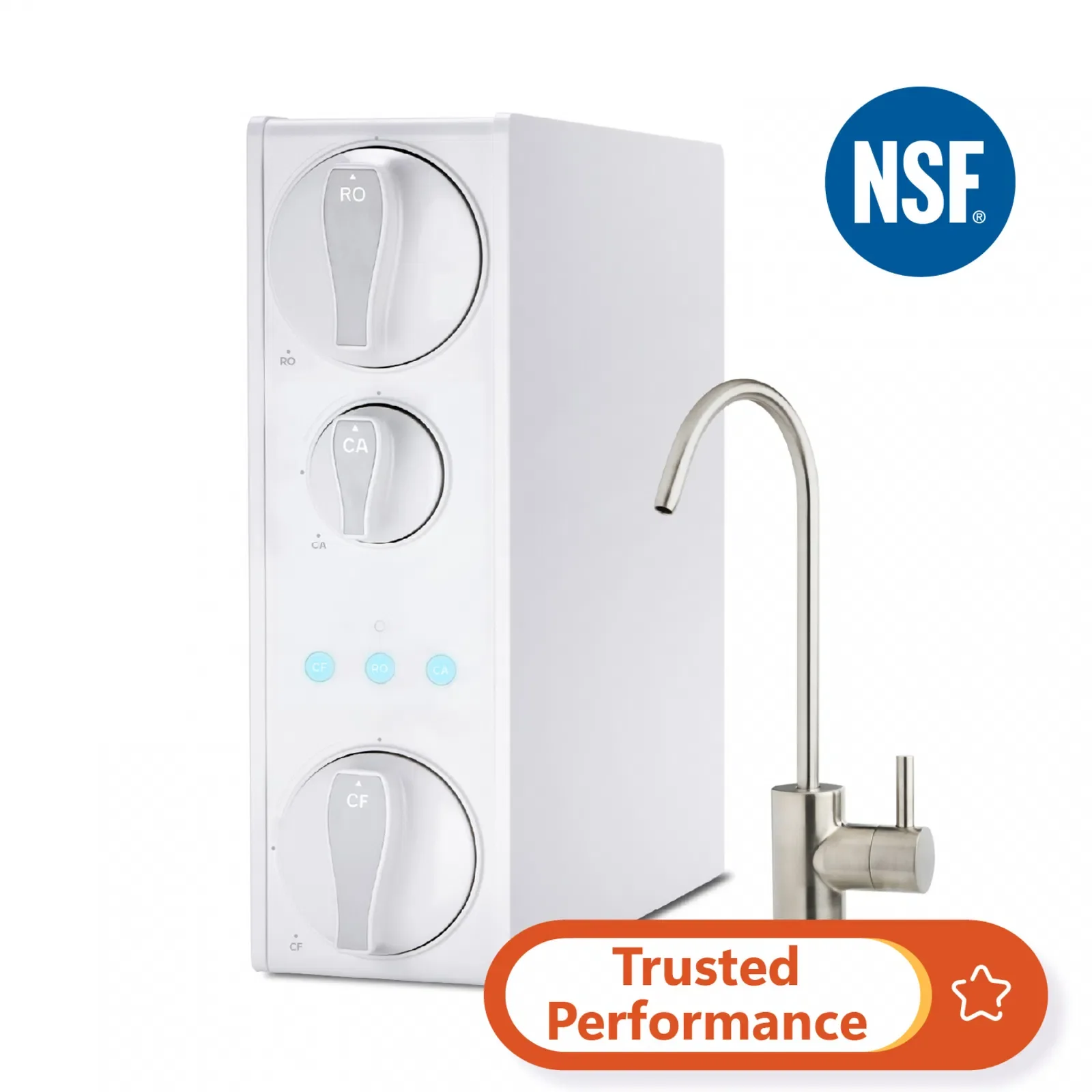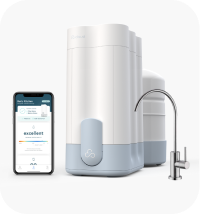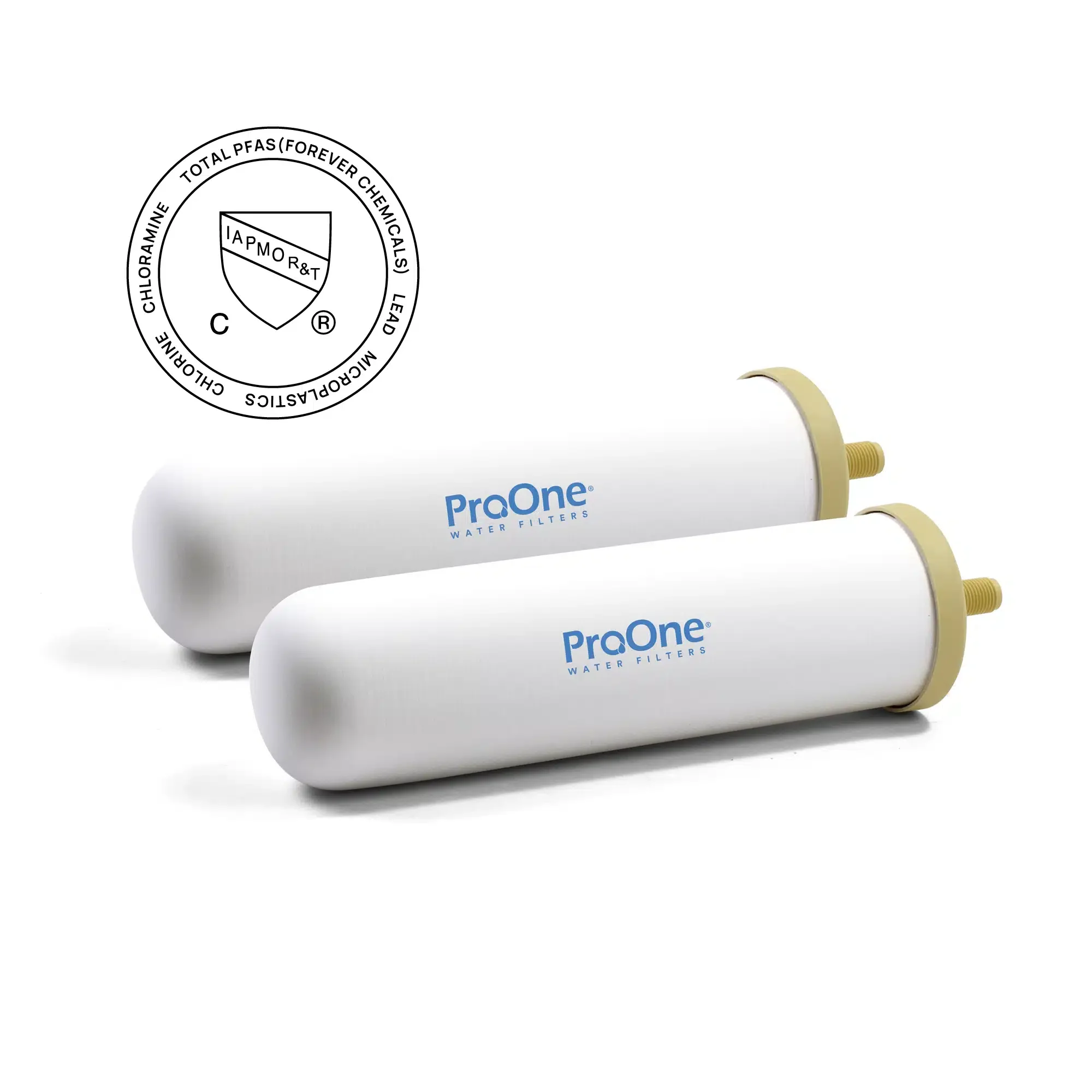Reverse Osmosis
There are A LOT of RO systems on the market today and some seem a little dubious to me. When buying any water filtration system, it’s best to stick with one with a NSF certification. Below are a few that claim to be NSF certified. These are listed because of their certification, not because I endorse them or have tried them personally. I strongly recommend going to nsf.org and doing your own research on water filters and water safety.
iSpring
iSpring offers several under-the-sink models that are NSF certified. However, not all iSpring systems are NSF certified, so double check the model your considering before you buy!
iSpring also can be purchased at Home Depot.
Cloud
Cloud claims to remove 15x more contaminants than the leading pitcher filter and boasts a 98% rejection rate on total dissolved solids (TDS), making it one of the highest for filtration power. They offer one under-the-sink model that has DIY installation.
Cloud is NSF certified.
Click on “My Water” to put in your zip code to receive a water report on the contaminants in your tap water
Gravity Filters
Gravity water filters are a less expensive, countertop option. The plus is they remove contaminants but not the minerals, keeping the natural pH of the water. The downside is they don’t remove as many contaminants as RO systems. As with the RO systems, it’s best to stick with one with a NSF certification. Below are a few that claim to be NSF certified. These are listed because of their certification, not because I endorse them or have tried them personally. I strongly recommend going to nsf.org and doing your own research on water filters and water safety.
Berkey
Berkey is probably the most well known gravity water filter, so I mention them here.
Berkey is not NSF certified.
But Berkey is an American company. Several of the other companies are headquartered in China.
My experience with them is that they’re a pain to keep functioning.
ProOne
The ProOne G2.0 filter has the NSF Standard 42 certification. Their newer model — the G3.0 — has not been certified by the NSF but has been certified to NSF standards by the IAMPO.





